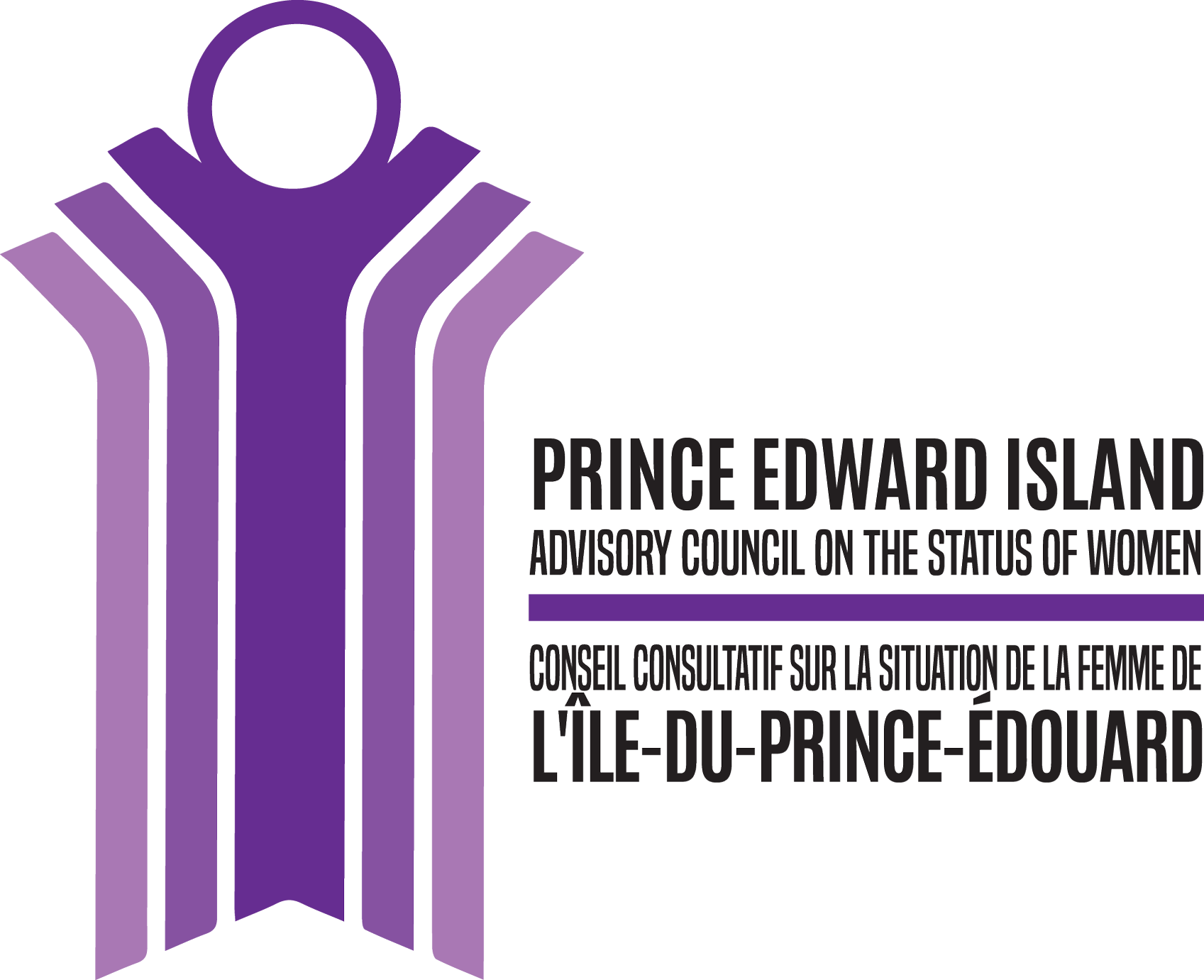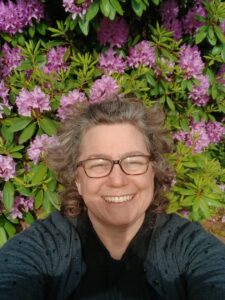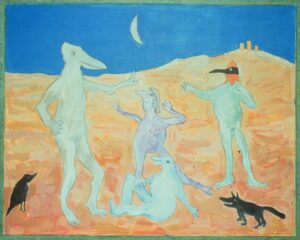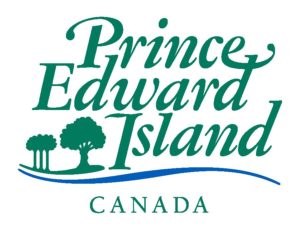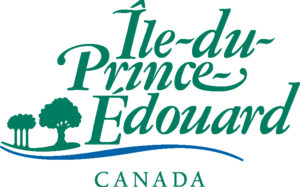We are asking each current staffperson with the PEI Advisory Council on the Status of Women to choose a milestone year to reflect on among these “50 Ways to Achieve Equality” posts. Today’s significant year is selected by Jane Ledwell, who has been working full-time with the Council since June 2004, when she was hired as a researcher/policy analyst. In September 2012, she took on the role of Executive Director. She chose 2000 as her milestone year.
The year before my millennium milestone year, in 1999, I was working with the Institute of Island Studies at the University of Prince Edward Island, coordinating an international conference. I remember my officemate and mentor, Nancy Murphy, coming back to our shared office in Dalton Hall after meeting with a new committee. She was full of enthusiasm about a project the committee was planning to mark the turning of the millennium: a public history of women’s contributions to arts, crafts, and culture during the 20th century. The resource would be used in schools, in history and art education classes. The committee was brought together in 1999 by the PEI Advisory Council on the Status of Women through the inspiration of then-and-future Executive Director Lisa Murphy with support from the Interministerial Women’s Secretariat through the late Sandy Bentley. I longed to be part of the project, but I was in way over my head with the conference I was working on (international! high-tech! bilingual! and in Summerside being organized out of Charlottetown and Wellington!)
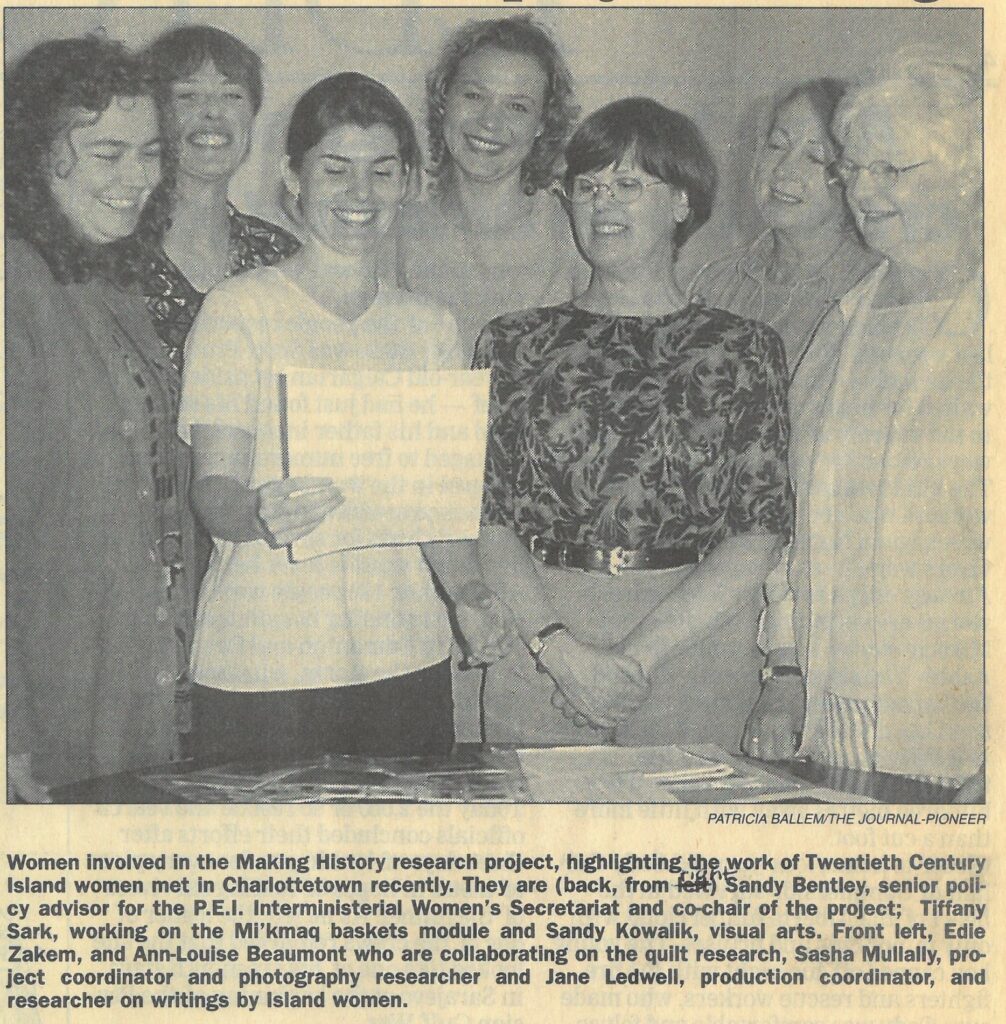
Photo from July 18, 2000, from the Journal-Pioneer, an article titled “Researchers excited about project findings,” about the work that would become the First Hand project. Coverage by Patricia Roy Ballem, who was Council Chairperson at the time!
I kept a keen ear to the project and started to hear more about it not only from Nancy but from my friend Sasha Mullally, who was hired as the research coordinator. Sasha was creating a template module for the project and drawing in subject-experts and curious feminists, mostly non-historians who could nonetheless add to this public history project. When the conference ended, and my contract too, I was delighted to be invited to contribute a module focused on women’s contributions to the literary arts in the 20th century in PEI. As an emerging poet with a Master’s in English lit (rather than conference organizing!), this was pretty exciting. What a delight it was to spend days in the PEI Collection in the Robertson Library, poring over every issue of Common Ground magazine, considering the influence of the omni-present L.M. Montgomery, poking through anthologies, reading all the books and chapbooks by individual authors or small groups. What an education, not only in Island writers and writing and the feminist movement. I didn’t write the essay I would write today, but that’s history for you.
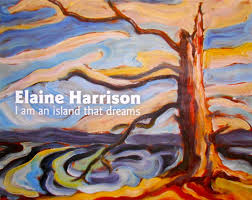
Jane says, “It is one of my proudest later accomplishments that I got to contribute an essay about Elaine Harrison and to choose among her poems to include in the retrospective exhibition and book about her work.”
Several artists popped up in more than one module. L.M. Montgomery, of course, especially as a pioneering photographer as well as a writer. However, it became clear early on that the guiding light of the project was the sui generis Elaine Harrison: extraordinary painter, teacher, writer, publisher, arts advocate and organizer, feminist trail-blazer. We found our title and inspiration for the project’s spirit in Elaine’s poem/manifesto “Sing Your Own Songs.” “Sing your own songs paint your own pictures / write poems build houses and think your own thoughts / And don’t for heaven’s sake let the professionals / or critics tell you that you can’t,” she commanded. “Art is an adventure for you alone to experience first hand,” she directed. We obeyed! First Hand became the title of the project.
At some point, as Sasha’s research coordinating led to contributors with more and more draft texts and images and examples to illustrate their works, Advisory Council ED Heidi Rankin asked if I would expand my role with the project and serve as the project’s publication coordinator. Of course, I jumped at the opportunity. There were five modules taking shape in addition to mine on literary arts: the module on photography that Sasha Mullally had researched and developed; a module on Mi’kmaw basket weaving, being researched by Tiffany Sark; one on mat hooking, being researched by former Council-Chairperson Anne Nicholson; one on quilting, being researched by Edie Zakem and Ann-Louise Beaumont; and one on visual art, being researched by Sandy Kowalik, who also went on to take a leading role in the project (among other things, creating the cover image and poster images, organizing the launch and exhibit). There was not enough funding for a printed book (a shame!), so the project would be presented as links on the InfoPEI website, and eventually a CD-ROM.
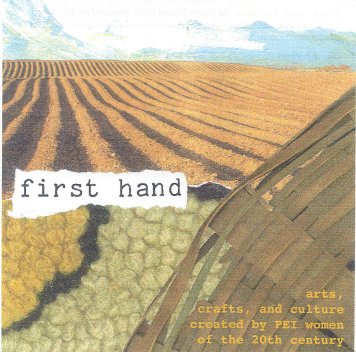
The cover image of First Hand: Arts, Crafts, and Culture Created by PEI Women of the 20th Century. Collage and design by Sandy Kowalik.
Every project had to be refined and edited with the amazing and hard-working authors. Permissions had to be arranged for images and examples, artists sent an honorarium. All the texts had to be proofread by the Advisory Council on the Status of Women’s sharp-eyed administrator, Becky Tramley. Every part of the project was translated into French. And every section of the project, every image, had to be uploaded to the InfoPEI website in English and in French within a complex set of linked units — they didn’t call it the world-wide web for nothing, and I was a busy spider, weaving. (Years later, when the InfoPEI framework started to crumble, and CD-ROMs turned out not to be as durable as they seemed, we made sure First Hand would survive by putting it together as a PDF in 2017 and also getting it into libraries.)
I have so many fun memories of the First Hand project — driving all over PEI in the worst car ever built to meet the researchers and some of the artists, wrestling with scanners and HTML codes, barrelling (too fast) to Lennox Island with Sandy to take first-hand photos of the beautiful baskets Tiffany told the stories of, hearing Anne’s delight at working with women on rug-hooking after years of work focused on violence against women, listening to Heidi Rankin trying to puzzle out reporting to the federal Rural Secretariat, who sponsored the project but whose paperwork was designed for buying tractors, not telling the story of women’s contributions to the arts!
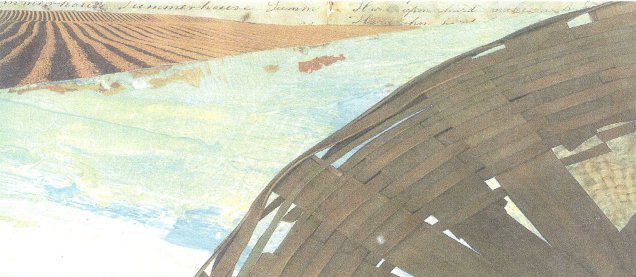
Another collage by Sandy Kowalik created for First Hand: Arts, Crafts, and Culture Created by PEI Women of the 20th Century.
A notable moment for the Advisory Council on the Status of Women that came about through the First Hand project is the first public and deliberate inclusion of a trans woman as a woman, without qualification. Very early in the project, Sandy Kowalik told the committee how important it would be to include Erica Rutherford in the visual arts module, and the response was an immediate yes, of course. (This summer, Erica Rutherford is the first PEI artist, let alone PEI woman artist, to have a solo exhibition at the National Gallery of Canada.)
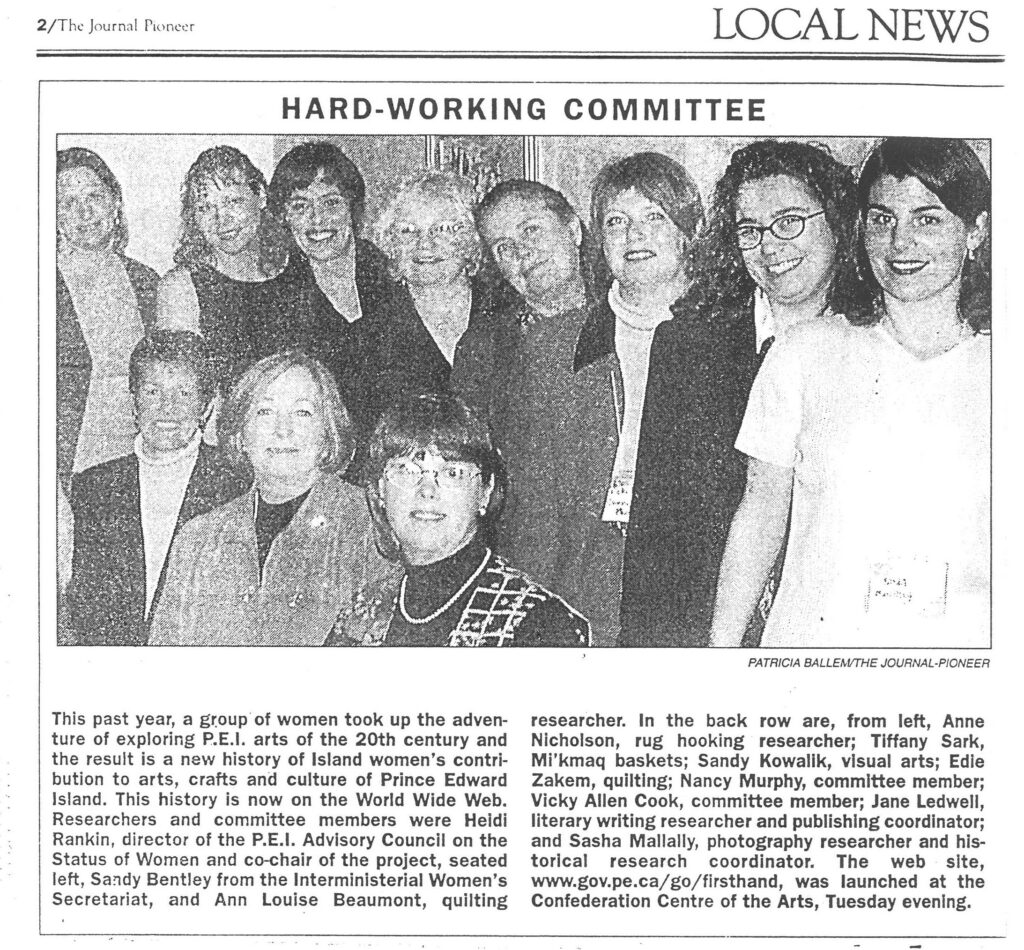
Journal-Pioneer photo of committee members at the First Hand launch in January 2001. More coverage by Patricia Roy Ballem.
The year 2000 was a year of major personal milestones for me. I got an arts grant to work on the poems that would become my first book. Impossible luck led me to a tiny house in Charlottetown, and before I hosted the housewarming, I met Stephen, the visual artist who is still my partner in that house a quarter-century, two kids, and more than a handful of cats later. By the time of the official launch of First Hand in January 2001, I had made friends and connections through the PEI Advisory Council on the Status of Women that led me to a new, unimagined career, following my passions for social justice and gender equality, public policy and creative culture, not to mention my love for my island home.
